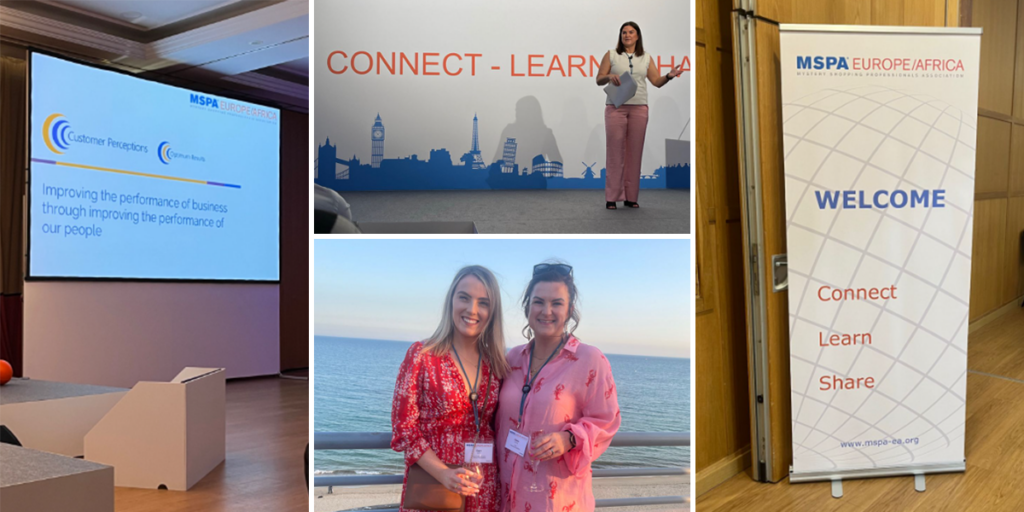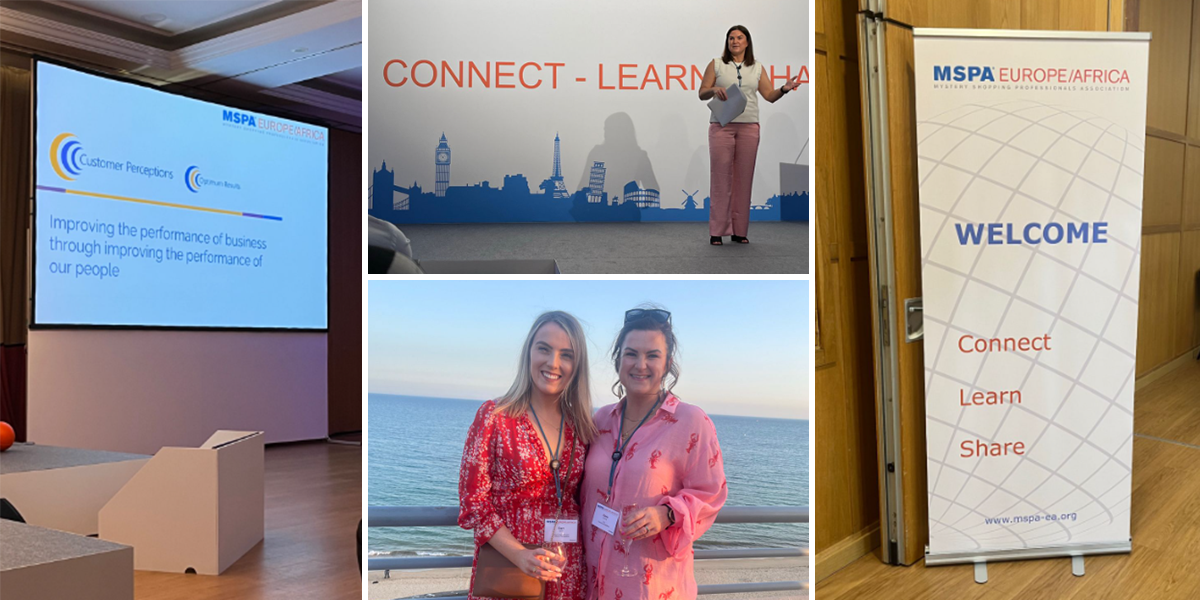Written by: Lynn Carr, Senior Project Manager
In late May, Emma and I had the incredible opportunity to travel to Portugal to attend the 2023 MSPA Europe/Africa conference. The MSPA, or Mystery Shopping Professionals Association, is dedicated to helping its members deliver world-class mystery shopping solutions and provides us with invaluable support and expertise. Customer Perceptions are proud members of this organisation.
Hosted in the beautiful Algarve, the theme of this year’s conference was “The Human Asset | Driving Operational Excellence.” The venue itself, a superb hotel set on a beautiful beach just minutes from the buzz of Albufeira, provided us with the perfect backdrop for what was set to be a wonderful few days of connecting, learning and sharing.
One of the most remarkable aspects of the conference was the sheer diversity of the attendees and speakers. The talks, delivered by a series of renowned industry experts, were nothing short of awe-inspiring. As I sat among the audience, I found myself engrossed in presentations that challenged my existing knowledge and expanded my horizons. Among the speakers who delved into thought-provoking subjects, sharing their research and experiences, was Emma Harte, our own CEO. Emma delivered an inspiring presentation entitled “Improving the business performance through the performance of our people.” In her presentation, Emma spoke about the single most important asset in any business, the human asset.
She brought the room through her own inspiring journey to CEO, what we as an organisation do to maximise on and acknowledge the value of our people for the success of the business strategy and how, in the words of Peter Drucker, “Culture eats strategy for breakfast!”
We also attended workshops and networking sessions which covered a wide array of topics, from operational excellence through people, cutting-edge innovations, to overcoming industry challenges. Each session was a provided a rich array of ideas and perspectives, with discussions leaving no stone unturned. These sessions fostered an environment of collaboration and camaraderie, where we felt encouraged and empowered to exchange ideas, seek advice, and build lasting connections.
One of the greatest treasures of attending this year’s conference was the networking opportunities we were presented. We had the privilege to connect, learn from and share with professionals from all over Europe and Africa, with each peer bringing their unique expertise and insights. During coffee breaks, meals, and evening social events across the conference, we engaged in insightful conversations with other mystery shopping professionals from diverse cultures and backgrounds, enhancing our professional networks, working knowledge and expertise further.
Attending the 2023 MSPA Conference was an eye-opening experience for professional growth. We deepened our knowledge in the field of mystery shopping, broadened our perspective on global challenges, spent time with friends, new and old, building friendships and making memories that will last a lifetime. The connections we made and the insights we gained will continue to inspire and guide us for a long time!












